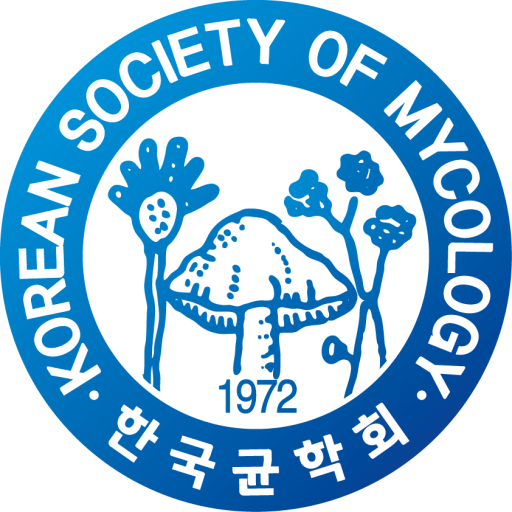1. (목적) 이 규정은 한국균학회 정관 제10조와 12조에 의거 학회의 임원선출에 관련한 사항 중 회장선거를 공정하고 효율적으로 추진하기 위하여 선거관리위원회(이하 “위원회”라 한다)를 설치하고 이의 운영에 관한 제반 사항을 정하기 위하여 제정되었다.
2. (구성)
1) 회장은 임기 만료 4개월 전에 위원회를 구성하고 위원 및 위원장을 위촉한다.
2) 위원회는 위원장 1인, 위원 4인 이상으로 구성하며 위원 중 1인은 본 학회 현직 감사가 당연직 위원이 된다.
3. (임무)
1) 위원회는 해당 연도의 선거관리만을 위하여 한시적으로 운영된다.
2) 위원회는 선거관리에 관한 절차 및 선거일정을 확정한 후 이를 정회원 전원에게 통지한다.
4. (유권자확정) 회장 선거 공고일로 기산하여 정회원으로 재적하고 당해 연도회비를 납부한 정회원만을 유권자로 한다.
5. (입후보자의 자격 및 결정)
1) (자격) 회장 입후보자의 자격은 본회의 평의원으로 하되 선거일 기산 과거 5년간 회비를 납부한자로 한다.
2) (입후보 신청) 회장으로 입후보하고자 하는 자는 평의원 10명 이상 20명이내의 추천을 받아 공고된 기간내에 입후보 신청서와 추천서, 이력사항을 위원회에 제출한다.
3) 위원회는 추천된 사항을 이사회에 상정한다.
4) 이사회는 추천 받은 자의 자격 및 적격성 여부를 심의하여 후보자로 확정한다. 단 추천자가 없는 경우와 추천자중 적격성이 결여된다고 판단될 경우에는 이사회에서 추천한다.
5) 확정된 후보자는 입후보 승낙서 및 이력서, 학회운영소견서를 위원회에 제출한다.
6) 위원회는 후보자의 명단(“가나다” 순)을 회원에게 공고한다.
6. (투표관리)
1) 위원회는 후보자의 약력과 학회운영소견서와 투표용지 및 반송봉투를 정회원 전원에게 우송한다.
2) 투표는 우편투표를 원칙으로 하며, 투표함 설치장소에 직접 투표할 수도 있다. 투표용지를 넣는 봉투(투표지봉투)에는 아무런 표시를 할 수 없으며, 이를 겉봉투에 넣어 위원회로 우송하고, 위원회는 개표당일까지 개봉할 수 없을 뿐만 아니라 보관의 책임을 진다.
3) 선거일정에 정해진 마감일 당일의 소인이 찍힌 투표까지를 유효로 인정하며, 직접 투표하는 경우에는 마감일 전에 투표하였다는 사실을 제3자가 확인하여야 한다.
4) 향후 전자투표 시스템을 도입할 경우에는 그 규정을 정하여 이사회의 결의 후 실시한다.
7. (개표관리)
1) 개표는 공고된 일시 및 장소에서 이루어지며 선거관리위원 과반수의 출석이 있을 때 개표를 진행한다.
2) 개표 시에는 입후보자 자신 또는 그를 대표하는 참관인이 참관할 수 있다.
3) 선거관리위원은 개표 시 유효 표를 확인한 후 집계를 실시한다.
8. (당선자 확정)
1) 입후보자가 2인 이상인 때에는 최다 득표자를 당선자로 정한다. 만일 동점 득표자가 발생 할 경우에는 연장자를 선정한다.
2) 입후보자가 1인인 경우에는 총 유효투표 과반수의 신임으로 당선을 결정한다. 과반수의 신임을 얻지 못하는 경우에는 이사회가 다른 적임자를 선임하고 총회의 인준을 요청한다.
3) 선거관리위원장은 투표결과를 총회와 이사회에 통지하여야 한다.
9. (시행세칙) 이 규정의 시행에 필요한 기타 세부사항은 위원회의 협의에 따라 정한다.
10. (기타) 본 규정에 명시되지 아니한 중요한 사항은 본회 이사회의 결정에 따른다.
11. (부칙)
1) 이 규정은 2002년 7월 15일부터 유효하다.
2) 시행 첫해인 2002년에는 2003, 2004, 2005년도 임기의 회장들을 동시에 선출한다.
3) 회장 입후보의 신청은 평의원들의 복수추천에 의해서도 가능하다.
4) 당선자의 확정은 해당연도의 최다 득표자로 정하고 2004, 2005 임기의 회장으로 선출된 자들은 본인의 회장임기 이전까지 부회장직을 수행한다.
5) 위의 부칙 2), 3), 4)항은 2002년 선거에만 적용한다.
6) 2008년 5월 23일 개정, 2021년 8월 11일 일부 개정

 한국어
한국어